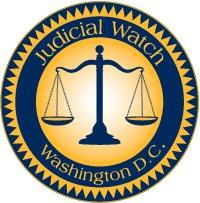Judicial Watch, Allied Educational Foundation File Brief Supporting Election Integrity in Ohio Court Fight

WASHINGTON, Aug. 8, 2016 /
Christian Newswire/ -- Judicial Watch announced today that it joined with the Allied Educational Foundation (AEF) in filing an
amici curiae brief with the United States Court of Appeals for the Sixth Circuit arguing that the appeals court should reverse the decision of the U.S. District Court for the Southern District of Ohio that struck down an Ohio law shortening the state's absentee voting period from 35 to 29 days (
Ohio Democratic Party v. Husted (No. 16-3561). This reduction had the effect of eliminating "Golden Week," a period of early voting in which Ohioans could also register to vote.
Ohio requires all voters to register 30 days before the election. It allows all voters to vote absentee over a 29-day period, as well as gives all voters thirteen hours to vote on Election Day.
The district court decided that a reduction in early voting from 35 to 29 days would disproportionately burden African Americans because of the reduction of opportunities to vote. However, the district court also found that any actual effect the challenged law might have on minority registration or turnout would be "modest":
"[A]lthough the Court cannot predict how many African Americans will turn out in future elections, it is reasonable to conclude from this evidence that their right to vote will be modestly burdened by S.B. 238's reduction in the EIP [early in-person] voting period and elimination of SDR [same day registration]."
The Judicial Watch/AEF brief cites studies that contradict the District Court's assumption that a reduction in early voting will "modestly burden" African Americans. A 2013 study by Barry C. Burden and co-authors, published in the American Journal of Political Science, study found that:
It seems logical that making voting more convenient . . . will encourage more people to cast ballots. We challenge this notion and show that the most popular reform – early voting – actually decreases turnout when implemented by itself, an unanticipated consequence that has significant implications for policy and for theories of how state governments can influence turnout. This result is counterintuitive, and it certainly runs against the grain of conventional wisdom.
A June 2016
report from the General Accounting Office (GAO) about the "depressant effect" of early voting found:
We reviewed 20 studies from 12 publications, and these studies had varied findings. Seven studies found no statistically significant effect, another 8 studies found that the policy decreased turnout, and 5 studies reported mixed evidence. Reported effects from these studies ranged from a 3.8 percentage point decrease in turnout to a 3.1 percentage point increase. [Emphasis added]
Judicial Watch and AEF conclude that:
It is, then, a serious, open question as to whether the elimination of early voting will lead to lower voter turnout. Because the plaintiffs have failed to present persuasive evidence establishing the likely effect of early voting on voter turnout, they have not met their burden of establishing their claims by a preponderance of the evidence...

